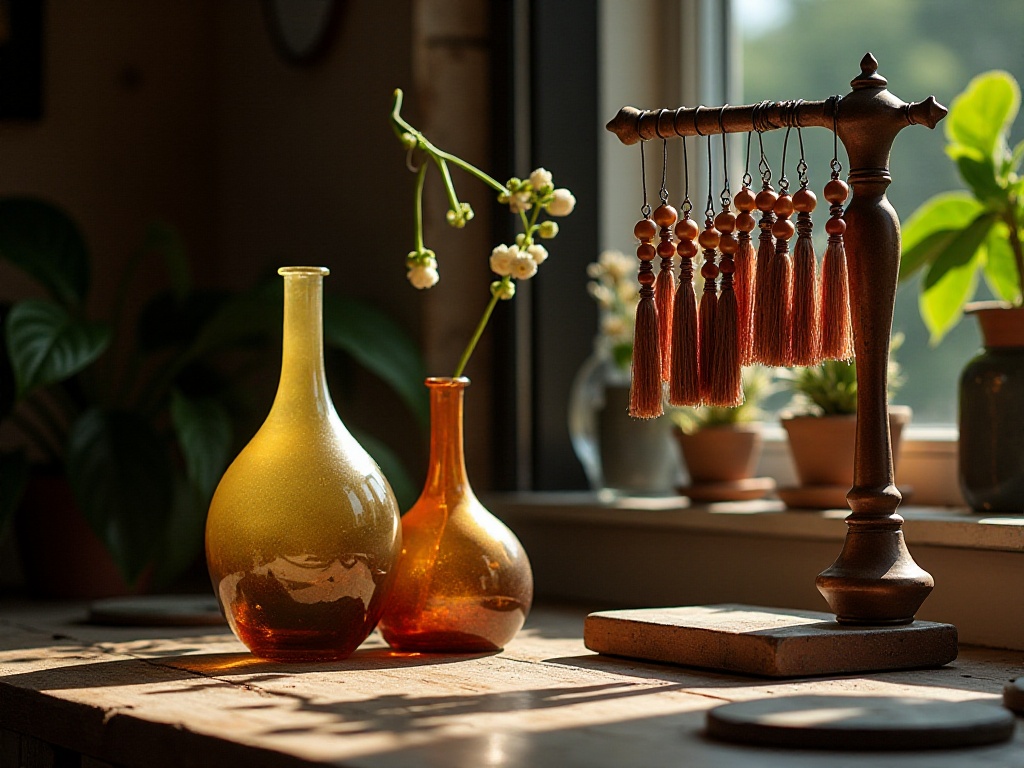Opening Words
Recently, I discovered that my lifestyle has undergone a dramatic transformation since incorporating an AI assistant. From someone who would burn even fried eggs to now being skilled at various life hacks, this experience has made me deeply realize: life can be so effortless and enjoyable. Looking back, I used to follow a daily routine of takeout, gaming, and scrolling through videos, but now I can actually impress friends with authentic home-cooked meals and keep my home perfectly organized - I've become a completely different person! Today, let me share how I gradually improved my quality of life with the help of an AI assistant.
Smart Planning
I remember this time last year, I was constantly struggling with "what to eat today." I would open food delivery apps, feel overwhelmed by choices, yet never find anything particularly appealing. Sometimes after finally ordering from a restaurant, I'd feel it wasn't healthy enough or too expensive. Then one day, I decided to try asking my AI assistant to help plan a week's menu.
This experiment turned out to be an amazing surprise! The AI assistant not only arranges meals based on ingredient freshness but also considers nutritional balance. For example, if I buy broccoli on Monday, it will suggest consuming it before Wednesday to maximize nutrition. If I buy pork, it reminds me to eat it within two days and provides various cooking method suggestions to prevent meal fatigue.
Even more thoughtfully, it adjusts recipes according to weather changes. I remember once when the temperature suddenly dropped, it immediately changed the planned cucumber salad to ginger duck soup. In hot summer days, it recommends refreshing cold dishes like marinated kelp strips and cucumber with black fungus. On rainy days, it suggests warming soups like tomato egg soup or corn and ribs soup, which make you feel cozy after drinking.

Culinary Advancement
Speaking of culinary improvement, I have so much to share. I remember when I first started cooking, it was a complete disaster. Fried eggs would always burn, stir-fries were either too salty or too bland, and when trying to make sweet and sour ribs, it would end up either too sour or too sweet - simply unbearable to look at.
I recall my first attempt at making sweet and sour ribs, I had no idea how to control the heat. That's when the AI assistant provided very detailed guidance: first use high heat to sear the ribs until golden (about 3 minutes), then switch to medium-low heat for slow cooking (15-20 minutes), and finally high heat to reduce the sauce (2-3 minutes). It not only told me specific timing but also reminded me to observe changes in the ribs' surface, like when they would turn golden and when the sauce would thicken.
Through such precise time control and state observation, my cooking skills improved dramatically. Now I can not only make delicious sweet and sour ribs but also easily handle previously challenging dishes like braised pork. The AI assistant would tell me that the key to braised pork is to blanch the meat first to remove blood and gamey flavors. Then during slow cooking, let the soy sauce and cooking wine flavors slowly penetrate the meat - this is how you get braised pork that's crispy outside and tender inside, melting in your mouth.

Storage and Organization
Have you also been troubled by a messy wardrobe? I used to be like that, with clothes stuffed chaotically in the closet, having to dig through everything like a mountain every time I needed something. Worse still, I would often be late because I couldn't find suitable clothes. Sometimes I knew I had bought a favorite piece of clothing but couldn't find it anywhere, only to discover it crushed at the bottom when seasonal cleaning came around.
Until the AI assistant taught me the "horizontal zoning" method, this problem was finally solved. It suggested dividing my closet into work, casual, and special occasion zones, with each zone further subdivided into tops, bottoms, and accessories. This classification method seems simple but is particularly practical. On workday mornings, I go straight to the work zone to choose, no more struggling with what to wear. When I want to be casual on weekends, I just select from the casual zone - very efficient.
The AI assistant also taught me many storage tips. For example, rolling clothes and storing them vertically not only saves space but also allows you to see all your clothes at a glance. Underwear and socks can be stored in organizer boxes to prevent them from scattering. Bags should be stored upright with stuffing to maintain their shape, which extends their lifespan without taking up too much space.

Time Management
In terms of time management, the AI assistant is practically my personal butler. It helped me categorize daily tasks into four quadrants: "urgent and important," "important but not urgent," "urgent but not important," and "neither urgent nor important." Through this classification, I realized I used to waste time on things that were neither urgent nor important.
For instance, through data analysis, I discovered I was spending nearly 2 hours daily scrolling through short videos. Although watching videos seemed interesting at the moment, I could barely remember any content afterward. Following the AI's suggestion, I redistributed this fragmented time to learning and exercise. Now I watch 20 minutes of English videos in the morning, do 15 minutes of office yoga during lunch break, and spend half an hour reading professional books after returning home.
The AI assistant also taught me the "Pomodoro Technique," which divides work time into 25-minute units with 5-minute breaks in between. This method is particularly suitable for work requiring long-term focus. I used to feel my work efficiency was low, but now using this method, not only has the quality of my work improved, but I also don't feel as tired.

Emotional Regulation
Speaking of emotional management, have you ever experienced situations where work pressure made you want to quit? Or getting angry over small things? I've been through all of these. Especially during times of high work pressure, I would often fall into a spiral of negative emotions, feeling completely beaten down.
The AI assistant taught me a particularly effective method called the "3-3-3 breathing technique." It involves inhaling for 3 seconds, holding for 3 seconds, and exhaling for 3 seconds. When I first started practicing, I felt a bit silly, but after persisting for a while, I really noticed the change. Whenever I feel anxious or stressed, I find a quiet place and practice this breathing technique. Amazingly, after a few rounds of practice, those agitated emotions gradually calm down.
The AI assistant also taught me the "emotion diary" method. Every night before bed, I spend 5 minutes recording the day's emotional changes and their triggers. Through these records, I slowly discovered patterns in my emotional fluctuations. For example, I always get particularly nervous before meetings, and I tend to become anxious when working continuously without breaks. After discovering these patterns, I could prepare in advance and avoid emotional outbursts.

Creative Living
What surprised me most was that AI is also a fountain of creative ideas. It always manages to make ordinary life full of creativity and fun. I remember once when I was complaining about having to throw away old glass bottles, it immediately came up with a brilliant idea: transforming them into vintage vases using acrylic paint.
This idea lit up my eyes, and I tried it right away. First, sand the bottle surface clean, then paint vintage patterns with acrylic paint. Unexpectedly, the final product looked amazingly good, adding a special touch to the living room. This small creative project not only saved me money on buying vases but also earned countless compliments from friends.
Not only with object transformation, but the AI assistant also gave me many creative inspirations for lifestyle changes. For example, transforming the balcony into a small vegetable and herb garden. Taking care of these plants daily and watching them grow not only provides fresh ingredients but also brings a lot of joy.
Final Thoughts
Through more than half a year of practice, I deeply understand that improving life quality isn't about how much money you spend, but whether you master the right methods. The AI assistant is like a thoughtful friend, always ready to give you the most suitable advice. It not only helped me improve life efficiency but more importantly helped me discover infinite possibilities in life.
Now, I'm no longer that mechanically repetitive "office worker," but someone who knows how to enjoy life. I've learned how to better plan time, how to make home cozier, and how to make every day full of anticipation. This change is reflected not only in external quality of life but more importantly in inner fulfillment and satisfaction.
What aspects of your life do you think an AI assistant could help improve? Feel free to share your thoughts in the comments. Perhaps your experience will inspire others to discover the beauty of life's possibilities.
Related articles




